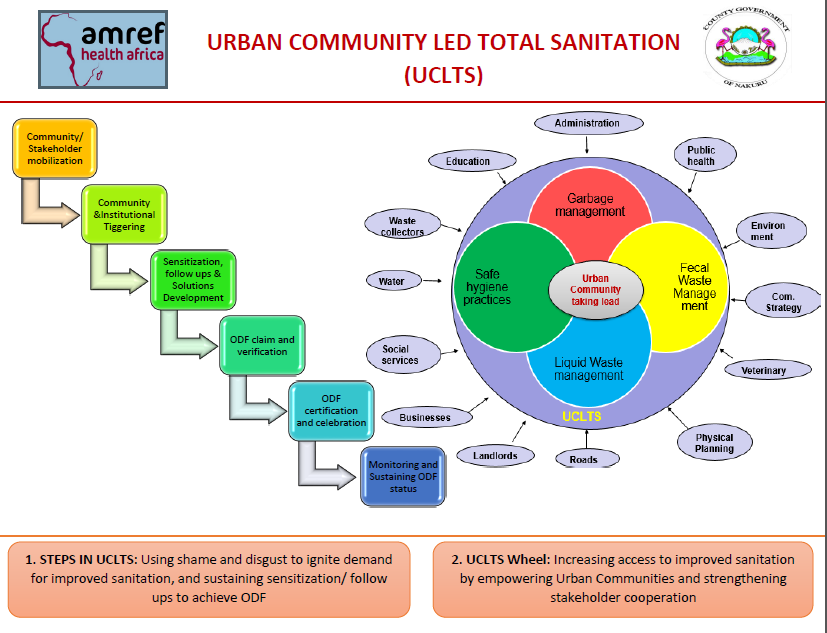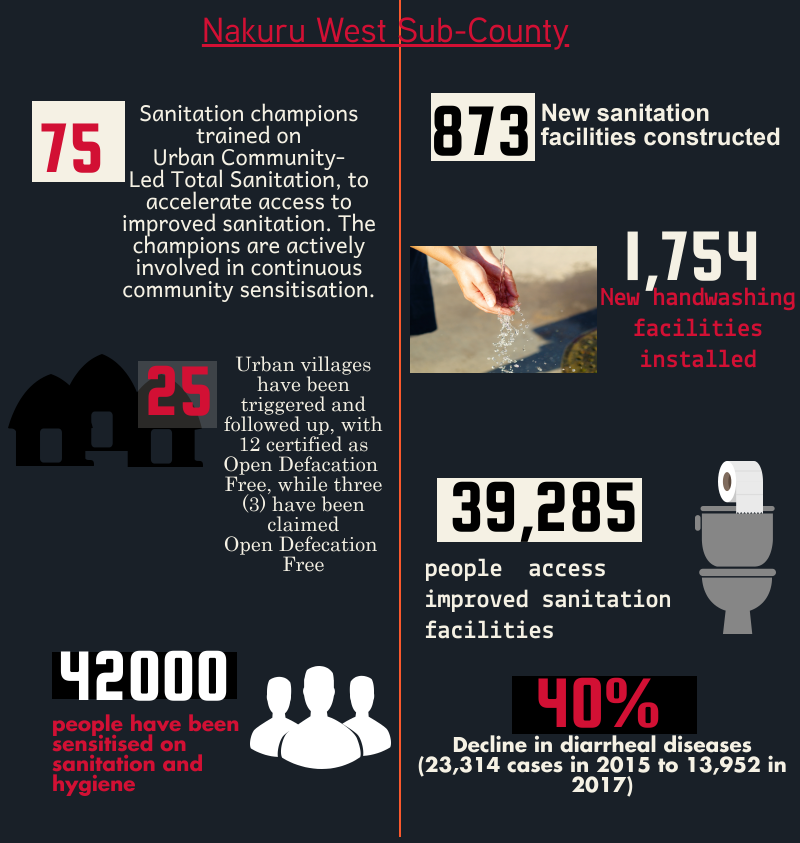Amref Health Africa in Kenya joined the world in commemorating the World Toilet Day at Kaptembwo Primary School, celebrating 12 urban villages that have attained Open Defecation Free (ODF) status in Nakuru West sub-county. The 12 are the first urban villages to become ODF in Kenya. The celebrations were presided over by Dr Zakayo Gichuki, Nakuru County Executive Committee Member for Health, and Amref Health Africa in Kenya Water, Sanitation and Hygiene (WASH) & Neglected Tropical Diseases (NTDs) Programme Director, Eng. Peter Waka.
Through the Nakuru Urban Sanitation project, Amref Health Africa in Kenya has been implementing Urban Community-Led Total Sanitation (UCLTS) with the following commendable achievements:
Sanitation Champions
School Health Program
- Strengthened health clubs in 20 schools and trained a total of 24 school health patrons on personal hygiene and sanitation education (PHASE)
- Approximately 14,000 pupils have been sensitised on WASH, who have in turn reached approximately 70,000 people through peer-to-peer messaging.
- Rainwater harvesting (3R) in five schools has been supported through the provision of 10,000 litre water tanks, reaching a total of 3,635 with improved access to safe water.
Improved Health Outcomes in Nakuru West
- 2% increase in latrine coverage (94.7% in 2016 to 96.9% in 2018)
- 1% increase in coverage of handwashing facilities (63.9% in 2016 to 68% in 2018)
According to WSP estimates, Nakuru County loses approximately Kshs. 978 million (US $ 9.78 M) each year due to poor sanitation related conditions. By contributing to the 19% decrease in diarrhea cases in the county, it can be estimated that sanitation improvement in Nakuru West has saved the county a total of Kshs 185.82 (US $ 1.85) Million between 2015 and 2017.
As pioneers of urban CLTS in the country, Amref Health Africa has in collaboration with the county government, developed draft UCLTS protocols for monitoring, verification and third party certification of villages/hamlets in the urban context. The protocol has been reviewed and revised by WASH technical experts at county and national levels and the process of adoption as national guidelines for urban CLTS has commenced.

